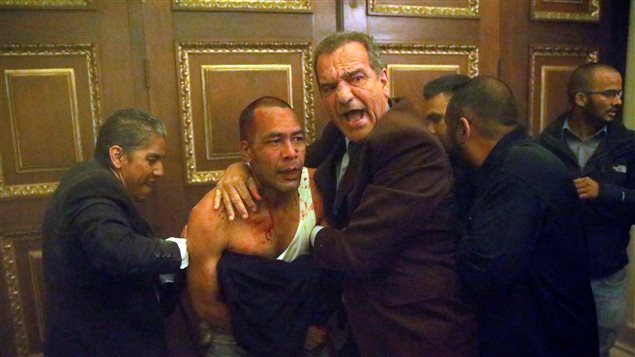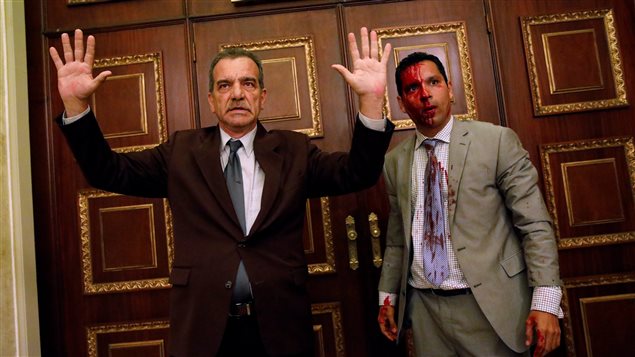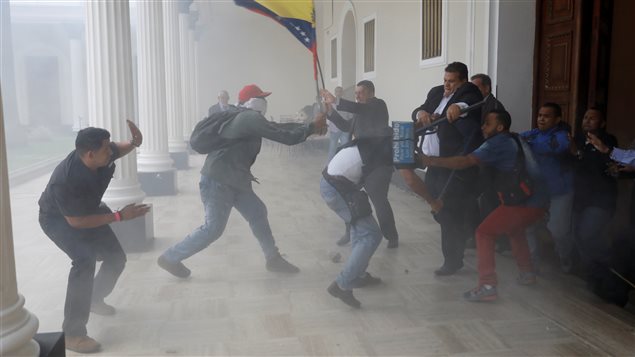Canada is “deeply troubled” by today’s violence against Venezuela’s democratically-elected National Assembly, Foreign Affairs Minister Chrystia Freeland said in a statement.
Ottawa’s reaction comes after dozens of government supporters burst into the opposition-controlled congress, attacking lawmakers and journalists in the latest flare-up of violence during a political crisis that has gripped the country for the last three months.
Witnesses at the scene told AFP said the confrontation came after an assembly session to mark the country’s Independence Day.

Photographs from the scene showed scuffles between lawmakers and protesters with both sides sustaining injuries.
The government has promised to investigate and punish the guilty.
Canada is also concerned by the legal measures Venezuela’s Supreme Court is pursuing against Attorney General Luisa Ortega Díaz, who fell out of favour with the government of President Nicolas Maduro after criticizing a decision by the country’s top to strip the opposition-controlled parliament of its powers.
“Once again, Canada urges the Government of Venezuela to restore democratic governance and respect the independence of the office of the attorney general and of the national assembly,” Freeland said. “The selection of members of the national electoral council and the Supreme Court must follow constitutional procedures.”
Freeland also called on the government of Venezuela to release all political prisoners and set an electoral calendar without delay.
“As Venezuelans celebrate their independence today, we urge the Government of Venezuela to respect democratic rights and bring back the independence of the very institutions that protect the rights of its people,” she said.

At least 90 people have died in three months of street protests across the country, which began after Venezuela’s Supreme Court, dominated by supporters of President Maduro, ruled to strip the opposition-dominated parliament of its powers, accusing lawmakers of “contempt” after allegations of irregularities by three opposition lawmakers during the 2015 elections.
The ruling, which was denounced as a coup by the opposition, was later reversed but massive street protests against Maduro government continued.
As Venezuela’s crisis has deepened, with triple-digit inflation, record shortages of food and medicine and rising crime rates, Maduro has sought to rebuild his popular support by calling for a constituent assembly to rewrite the country’s “anti-capitalist” constitution crafted by his political godfather, the late President Hugo Chavez.
The assembly will be elected at the end of July. The opposition has promised to boycott the vote, which it says is rigged in favor of the ruling Socialist Party.
Critics fear this could allow Maduro to postpone the 2018 elections that many think he has good chance of losing amid the economic crisis that has gripped Venezuela. Maduro, however, has vowed that presidential elections will be held in at the end of 2018 “come rain, thunder or lightning in Venezuela.”
However, he is yet to announce the exact date.
With files from Reuters and AFP







For reasons beyond our control, and for an undetermined period of time, our comment section is now closed. However, our social networks remain open to your contributions.